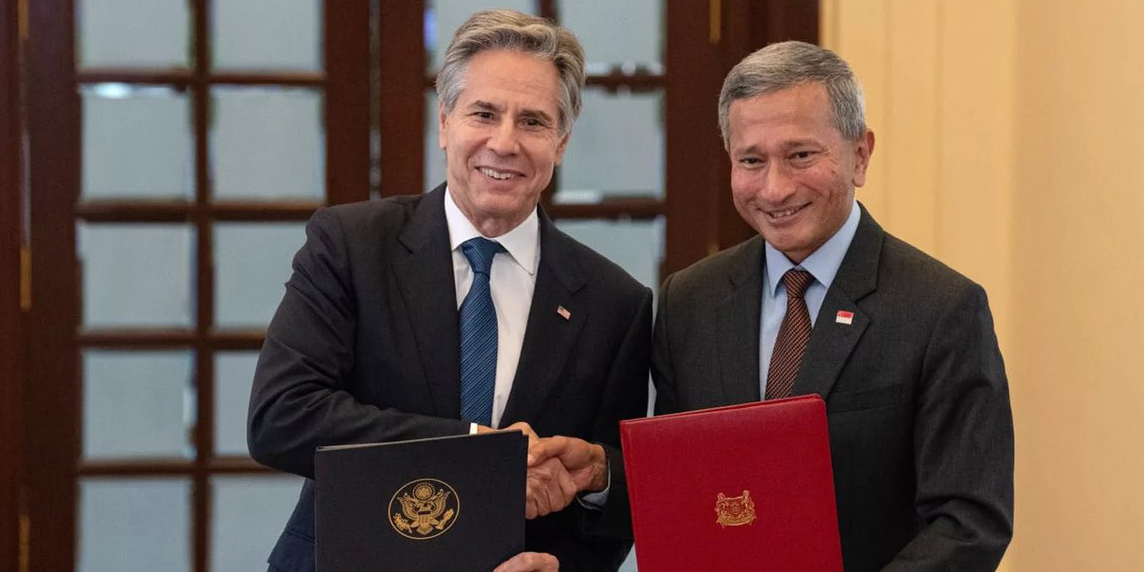We are “together taking on global priorities like the clean-energy transition,” Blinken said in a statement. “As Singapore decides whether to adopt civil nuclear energy, the 123 Agreement creates possibility, it creates a framework to develop safe, secure, modern civil nuclear power.”
The partnership: The 123 Agreement lasts for 30 years and aims to help Singapore make an informed decision on nuclear power as a clean energy source.
The United States has 24 such agreements in force that govern peaceful nuclear cooperation with 48 countries, the International Atomic Energy Agency, and the governing authorities of Taiwan (through the American Institute in Taiwan). Most recently, the U.S. signed a 123 Agreement with the Philippines, where the nation wants to build nuclear capacity of at least 1,200 M by 2032 and ramp up to 4,800 megawatts by 2050.
The 123 Agreement permits the transfer of nuclear material, equipment, components, and information for atomic research and civil nuclear energy production. It also facilitates the streamlining of licensing requirements for the private sector concerning investments in nuclear-related intangible transfers of technology.
Singapore’s plans: The southeast Asian nation currently has no nuclear energy facilities and has not made a definite decision on deploying nuclear. Singapore announced plans in April to build a pool of 100 nuclear energy experts in the “medium to long run” to inform its nuclear power plans.
Singaporean officials said any decisions about nuclear deployment in the nation will require detailed studies of the safety, reliability, affordability, and environmental sustainability.
About 95 percent of Singapore’s electricity is currently generated using imported natural gas. Yet the nation has laid out ambitious clean-energy goals of net-zero emissions by 2050.
Small modular reactors are emerging as a popular option.
“Current conventional nuclear technologies are not suitable for Singapore,” Balakrishnan said during the 123 Agreement signing. “But given advances in civil nuclear technology, we need to stay abreast of breakthroughs in this rapidly evolving field. The agreement facilitates access to information [and] technological expertise, and allows us to deepen our engagements with civil nuclear experts in the U.S.”
Singapore joined the U.S. Foundational Infrastructure for Responsible Use of Small Modular Reactor Technology (FIRST) program, which launched in 2021 to provides capacity-building support for partner countries as they develop nuclear energy programs.
Singapore’s second minister for trade and industry, Tan See Leng, said in April, “We continue to keep our options open to all kinds of low carbon energy, including, of course, nuclear energy, both fission and fusion.”


